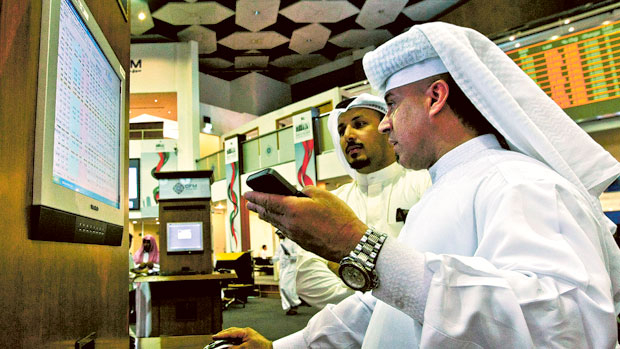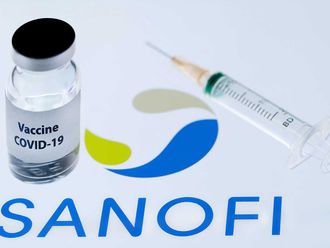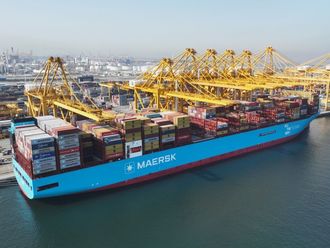
Dubai: Stock exchanges in the UAE are working towards product diversification to boost liquidity, a precursor for making the region as an international equity trading hub, and compete with Singapore and Hong Kong.
“The DFM [Dubai Financial Market] and ADX [Abu Dhabi Securities Exchange] are already working towards a more liberal regulatory and infrastructure, which would allow for required development for UAE to become an international hub for equity, fixed income and commodity investments,” Saleem Khokhar, head of equities at National Bank of Abu Dhabi asset management group said.
“We should have more of futures and options. We need to have a regulatory framework that is enforceable with international challenges,” Khokhar said.
The DFM and ADX currently had a total average turnover of $450 million (Dh1.7 billlion) on a daily basis since January. ADX said they are striving hard to introduce more products and improve liquidity to attract local and foreign investors, and “to serve the stakeholders.” The ADX listed $1.5 billion worth of government bonds on October 1.
“Our strategy is to have more of financial products. We have ETF [exchange-traded fund] traded on the stock market. We want to have more of government bonds, sukuks,” Rashed A. Al Blooshi, chief executive officer at ADX said on September 22.
“We have decided to go to derivative markets. We have started to communicate to all stake holders on how to move forward on derivatives market.” Al Blooshi said.
To increase the depth of the market, the government approved plans to introduce a second market for private companies, a move that would enable them to come out with an Initial Public Offering. The market will be operational in a few months.
The DFM is already speaking to a number of private companies for the second market, Eisa Kazem, Chairman of Dubai Financial Market said late last month. Earlier in May, MSCI upgraded the UAE indices to emerging markets from a frontier market category, a move that has resulted in an inflow of billions of dollars to the market. The S&P Dow Jones Indices also upgraded the indices on similar lines.
More IPO’s
“We have a strong pipeline of IPO’s and it is positive for the market. It will attract foreign liquidity and give investors necessary diversification which is very important for investors seeking for more exposure to various segments of the economy,” Rami Sidani, the head of frontier markets investing at Schroder Investment Management Ltd.
Marka’s IPO last month was the first one after a hiatus of 5 years. The much-talked about Emaar Malls Group also got listed on October 2, plus many more family owned businesses have shown intentions to list on exchanges. Dubai Financial Market may have one more IPO before the end of the year in addition to health care start-up Amanat.
The Abu Dhabi Securities Exchange expects at least two listings by the end of the year, although they are talking to 4 potential companies. ADX has been trying to get more companies in health, retail, education, petrochemicals to become a part of the index.
Bigger the better
“We will be able to show more volumes on one exchange [due to the merger],” Sebastien Henin, head of asset management at The National Investor said.
The planned merger of the UAE’s two main stock exchanges will take more time to complete, a Dubai government official told Bloomberg on October 2.
“It’s still on the table,” Mohammad Al Shaibani, chief executive officer of Investment Corp of Dubai, the emirate’s main state-owned holding company, said in an interview. “We were hoping it would happen earlier. We knew that when the markets started to pick up again that the merger would be put on the shelf again as everybody is busy.”












